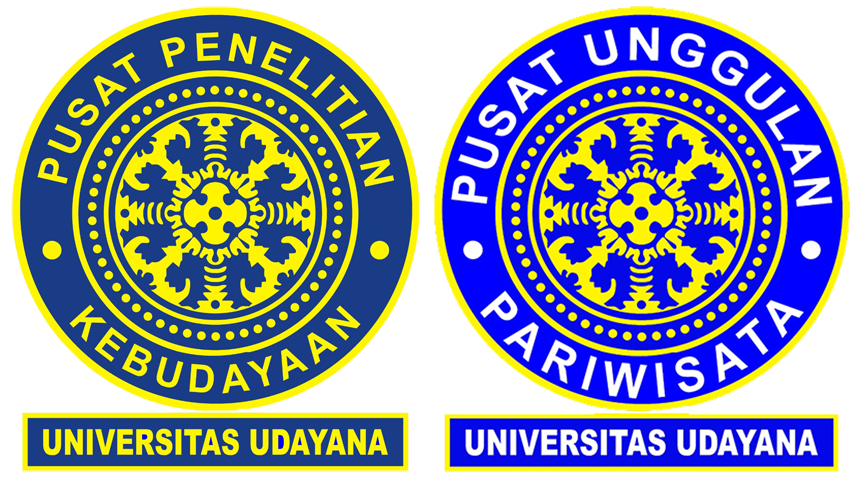Pengembangan Even Pariwisata Berkelanjutan di Ubud Bali
Abstract
This research aims to determine the priority of sustainable tourism event development strategies in Ubud-Bali with an Analytical Hierarchy Process (AHP). The concept of sustainable tourism supported by the Grand Theory Event was used as a foundation in processing in-depth interview data with Penta helix experts, resulting in nine criteria and four alternative strategies. The results showed several strategies to develop sustainable events in Ubud: improving destination image, preserving local culture, increasing global networking, and developing green events. All of these are supported by increasing the network and image of Ubud as an environmentally friendly event destination. The novelty is that the resulting strategic priorities have considered environmental aspects, local culture, and community interests in Ubud. As an implication, the result can be used as a practical guide for tourism stakeholders in developing sustainable tourism events not only in Bali but also in Indonesia and around the world.
Downloads
References
Buultjens, J., & Cairncross, G. (2015). Place in practice : Event tourism in remote areas : An examination of the Birdsville races Journal of Place Management and Development Article information : March. https://doi.org/10.1108/JPMD-07-2014-0010
Cai, M., Tang, J. N., & Griese, K. M. (2014). Green Meeting: A Sustainable Event. Advanced Materials Research, 1073–1076 (December 2014), 2815–2821. https://doi.org/10.4028/www.scientific.net/amr.1073-1076.2815
Chirieleison, C., Montrone, A., & Scrucca, L. (2020). Event sustainability and sustainable transportation: a positive reciprocal influence. Journal of Sustainable Tourism, 28(2), 240–262. https://doi.org/10.1080/09669582.2019.1607361
Crossley, É. (2020). Ecological grief generates desire for environmental healing in tourism after COVID-19. Tourism Geographies, 22(3), 536–546. https://doi.org/10.1080/14616688.2020.1759133
CNN. (2017). Ini Rangkaian Event Pariwisata Sepanjang 2018. Cnnindonesia.Com. Retrieved March 6, 2023, from https://www.cnnindonesia.com/gaya-hidup/20170928141932-307-244609/ini-rangkaian-event-pariwisata-sepanjang-2018
CNN. (2017). Ini Rangkaian Event Pariwisata Sepanjang 2018. Cnnindonesia.Com. https://www.cnnindonesia.com/gaya-hidup/20170928141932-307-244609/ini-rangkaian-event-pariwisata-sepanjang-2018
Damster, G. (2005). Event Management: A Professional and Developmental Approach (D. Tassiopoulos (ed.)). Juta and Company Ltd.
Darma Putra, I. N., Paturusi, S. A., & . W. (2017). Denpasar heritage track: Revitalisasi paket wisata ‘Denpasar city tour.’ Jurnal Kajian Bali (Journal of Bali Studies), 7(2), 39. https://doi.org/10.24843/jkb.2017.v07.i02.p03
Dickson, C., & Arcodia, C. (2010). Environmentally sustainable events : a critical review of the literature. Global Events Congress IV: Festivals & Events Research: State of the Art, Leeds Metropolitan University, July, 16.
Duran, E. (2013). A SWOT Analysis On Sustainability of Festivals: The Case of International Troia Festival. The Journal of International Social Research, 6(28), 72–79.
Getz, D. (2009). Policy for sustainable and responsible festivals and events: Institutionalization of a new paradigm. Journal of Policy Research in Tourism, Leisure and Events, 1(1), 61–78. https://doi.org/10.1080/19407960802703524
Getz, D., & Page, S. J. (2014). Progress and prospects for event tourism research. Tourism Management, 52, 593–631. https://doi.org/10.1016/j.tourman.2015.03.007
Java-indonesia, B. E., Earlike, F., & Sani, A. (2020). Priority Management of Nature Tourism in Sirah Kencong Tourism Area. 24(09), 1285–1296.
Jong, A. De, & Varley, P. (2017). Foraging tourism : critical moments in sustainable consumption. 9582(October). https://doi.org/10.1080/09669582.2017.1384831
Karta, N. L. P. A., Widiastini, N. M. A., Sutapa, K. I., & Wiles, E. (2022). Jurnal Kajian Bali. Journal of Bali Studies, 11(2), 370–386.
Kemenparekraf/Baparekraf RI. (2021). Kharisma Event Nusantara 2021 Siap Bangkitkan Industri Kreatif Indonesia. Kemenparekraf.Go.Id. https://www.kemenparekraf.go.id/hasil-pencarian/kharisma-event-nusantara-2021-siap-bangkitkan-industri-kreatif-indonesia
Mair, J., & Smith, A. (2021). Events and sustainability: why making events more sustainable is not enough. Journal of Sustainable Tourism, 29(11–12), 1739–1755. https://doi.org/10.1080/09669582.2021.1942480
Nusabali. (2018). Festival Danau Batur Macet. Nusabali.Com. Retrieved March 6, 2023, from https://www.nusabali.com/berita/38814/festival-danau-batur-macet
P2Tel. (2018). Kemenpar Rilis 100 Callendar of events(1/4). P2Tel.or.Id. https://p2tel.or.id/2018/12/kemenpar-rilis-100-callendar-of-events1-4/
Purnami, N. M. S., Putra, I. N. D., & Sucita Yanthy, P. (2022). Event Ubud Writers & Readers Festival Sebagai Promosi Destinasi Ubud. Jurnal Master Pariwisata (JUMPA), 9, 31. https://doi.org/10.24843/jumpa.2022.v09.i01.p02
Pitanatri, P.D.S., Wiarti, L. . (2022). Approaching the Paradox: Loving and Hating Technology Applications of Indonesia’s Cultural Events. In A. Hassan, T. C. Network, T. T. Society, & U. London (Eds.), Technology Application in Tourism Fairs, Festivals and Events in Asia (pp. 279–300). Springer. https://link.springer.com/book/10.1007/978-981-16-8070-0
Rastegar, R., Higgins-Desbiolles, F., & Ruhanen, L. (2021). COVID-19 and a justice framework to guide tourism recovery. Annals of Tourism Research, 91(xxxx), 103161. https://doi.org/10.1016/j.annals.2021.103161
Rowen, I. (2020). The transformational festival as a subversive toolbox for a transformed tourism: lessons from Burning Man for a COVID-19 world. Tourism Geographies, 22(3), 695–702. https://doi.org/10.1080/14616688.2020.1759132
Saaty, L. T. (2008). Decision Making With The Analytic Hierarchy Process. Int. J. Services Sciences, 1(1), 16.
Solopos.com. (2017). PARIWISATA INDONESIA : Kemenpar Rilis Kalender Event Pariwisata Nasional 2017. Solopos.Com. Retrieved March 6, 2023, from https://www.solopos.com/pariwisata-indonesia-kemenpar-rilis-kalenderevent-pariwisata-nasional-2017-792465
Stettler, S. L. (2011). Sustainable event management of music festivals: An event organizer perspective. Vasa, 144. http://pdxscholar.library.pdx.edu/cgi/viewcontent.cgi?article=1256&context=open_access_etds
Suardana, G. P., Putra, I.N.D., & Atmadja, N.B. (2015). “The Legend of Balinese Goddesses”: Komodifikasi Seni Pertunjukan Hibrid dalam Pariwisata Bali. Jurnal Kajian Bali (Journal of Bali Studies), 08(01), 35–42.
UNEP (United Nations Environment Programme) 2. (2012). SUSTAINABLE EVENTS GUIDE: Give your large event a small footprint. https://www.google.com/url?sa=t&rct=j&q=&esrc=s&source=web&cd=1&ved=2ahUKEwiOzrTA0J7dAhVNVsAKHU8MDWoQFjAAegQIARAC&url=http%3A%2F%2Fgreeningtheblue.org%2Fsites%2Fdefault%2Ffiles%2FSustainable%2520Events%2520Guide%2520May%252030%25202012%2520FINAL.pdf&usg=A
Wee, H., Mahdzar, M., Hamid, Z. A., Shariff, F. M., Chang, F., & Ismail, W. N. H. M. (2017). Sustainable event tourism: Evidence of practices and outcomes among festival organizers. Advanced Science Letters, 23(8), 7719–7722. https://doi.org/10.1166/asl.2017.9561
Werner, K., Griese, K. M., & Bosse, C. (2021). The role of slow events for sustainable destination development: a conceptual and empirical review. Journal of Sustainable Tourism, 29(11–12), 1913–1931. https://doi.org/10.1080/09669582.2020.1800021
Wiarti, L.Y; Putra, Putra, I.N.D.; Antara, I M; Pitana, I. G. (2021). Tourism-Based Event Performance: A Case Study in Ubud-Bali From Tourist’s Perspective. Eurasia: Economics & Business, 7(49), 37–48. https://doi.org/10.18551/econeurasia.2021-07
Wiarti, L. Y. (2021). Pengembangan Destinasi Berbasis Even di Ubud Bali. Udayana.
Wiarti, L. Y. (2021). Bertransformasi ke Virtual: Model Kombinasi “Virtual Face To Face” (VFF) Menjadi Genre Pilihan Even Pariwisata. In A. Masruroh (Ed.), Perjuangan dan Perubahan Hidup Selama Covid-19 (pp. 45–54). Widina Bhakti Persada Bandung.
Yavuz, M. (2020). Festivals in Event Tourism: The Case of International Izmir Art Festival. June 2013.
Zhong, D., Luo, Q., & Chen, W. (2021). Green governance: understanding the greening of a leading business event from the perspective of value chain governance. Journal of Sustainable Tourism, 29(11–12), 1894–1912. https://doi.org/10.1080/09669582.2020.1864385
Daftar Informan :
Gunartha, I.M. Wawancara dengan Founder Bali Spirit Festival, 2021
Purnami, N.M. Wawancara dengan ex-General Manager of Ubud Writer and Reader Festival & Ubud Food Festival. 2021
Sukawati, T.G.B. Wawancara dengan perwakilan Puri Ubud’s .2021
Mahajaya, I.G. Wawancara dengan pengusaha (Hotel Business Owner). 2021

This work is licensed under a Creative Commons Attribution 4.0 International License.



















